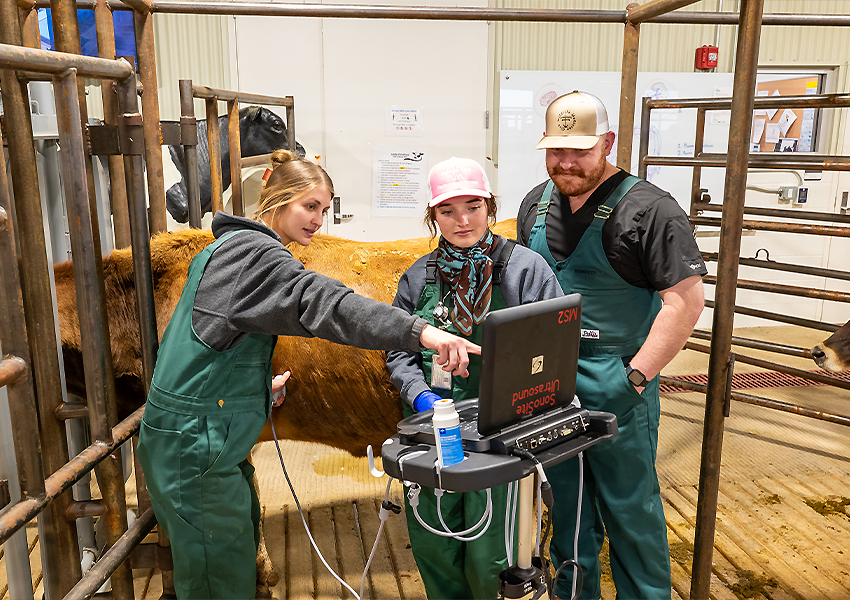
A passion for production animal medicine fuels first-generation college student to become a veterinarian and serve rural and regional communities.
Growing up on her family's ranch in the small town of Rio Vista, Texas, Railey Rumohr never doubted where her passion truly lied, in beef cattle production medicine.
For as long as she can remember, Rumohr's life has revolved around livestock. In fact, her family owned a professional rodeo company which took animal athletes to the National Finals Rodeo in Las Vegas for several years.
“My grandpa and my dad were both professional rodeo athletes and world champions,” Rumohr said. “The cowboy way of life is truly all I've ever known.”
Rumohr said this lifestyle taught her many things, such as the meaning of grit and determination. It also sparked her ambition at a young age to become a large animal veterinarian for rural and regional communities.
“From rodeo to running our own livestock, I quickly fell in love with all aspects
of the production industry,” Rumohr said. 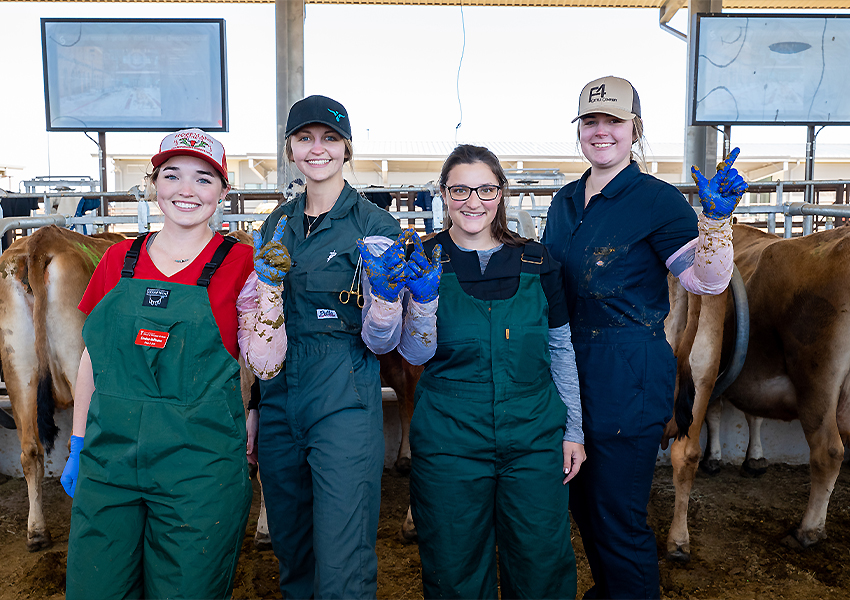
As soon as Rumohr heard Texas Tech University's School of Veterinary Medicine's purpose, she quickly realized she wanted Amarillo to be her new home. She is now on her way to becoming a veterinarian and combining her love for animals with her passion for rural communities.
Her rural background and true love for the cattle industry drive Rumohr to be her best day in and day out. Let's get to know Railey Rumohr through a series of questions.
What are you passionate about in veterinary medicine?
My passion lies in the field of beef cattle production medicine, cow-calf and stocker sectors specifically. However, I also have a love for rodeo livestock such as bucking bulls and bucking horses, as well as consulting and reproduction.
What are some life experiences that led you to that passion?
Growing up in a lifestyle revolving around running cattle, I was able to learn and gain valuable hands-on experiences such as working and doctoring cattle, fall and spring calving seasons, and basic feeding and husbandry skills.
On top of that, I grew up in the rodeo world. I began to understand what it takes for stock contractors to raise and produce high-quality animal athletes, and I knew I wanted to be able to contribute to that someday.
What inspires you to pursue what you love to do every day?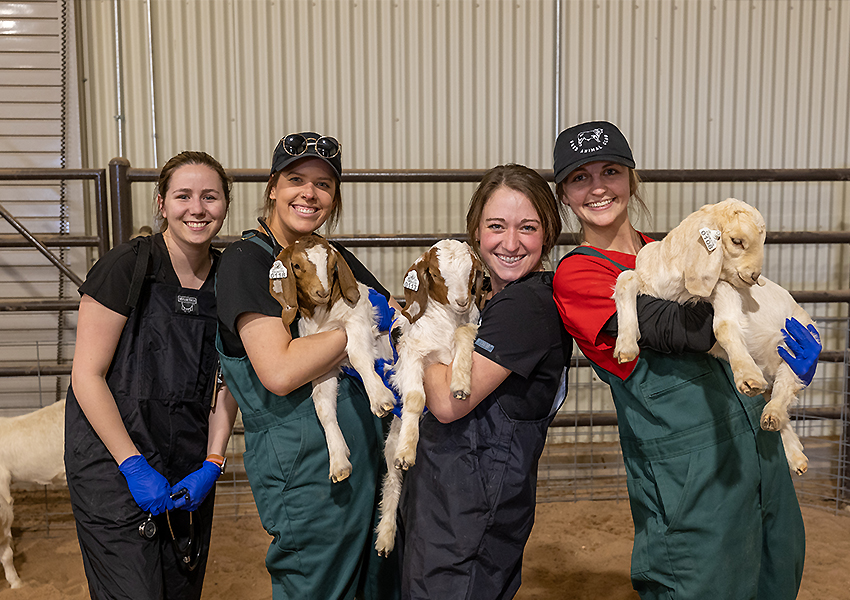
I was 11 years old when I told my parents I wanted to become a veterinarian. From that moment on, my parents continued to support my dream and be my biggest advocates throughout my life. I was a small-town kid with big goals, and I was dead set on reaching them.
Neither my parents nor grandparents went to college so it was always a goal of mine to receive a degree. I became a first-generation college student and graduated with my bachelor's in biological sciences and minor in chemistry from Southwestern Oklahoma State University.
Something that truly inspires me to become a veterinarian is my love for rural communities, specifically the farmers and ranchers. Growing up, it was extremely apparent to me the high demand for rural veterinarians. Producers have adapted to being self-sufficient in many aspects where veterinarians could be used.
I know this firsthand because my family did the same. However, I am a firm believer that there needs to be more rural large animal practitioners capable of relieving the needs of these farmers and ranchers. My inspiration is fueled by decreasing the high demand for veterinarians, and being able to aid the producers and rural communities who give their lives to helping feed the world around us.
How do you plan to go back and help your community?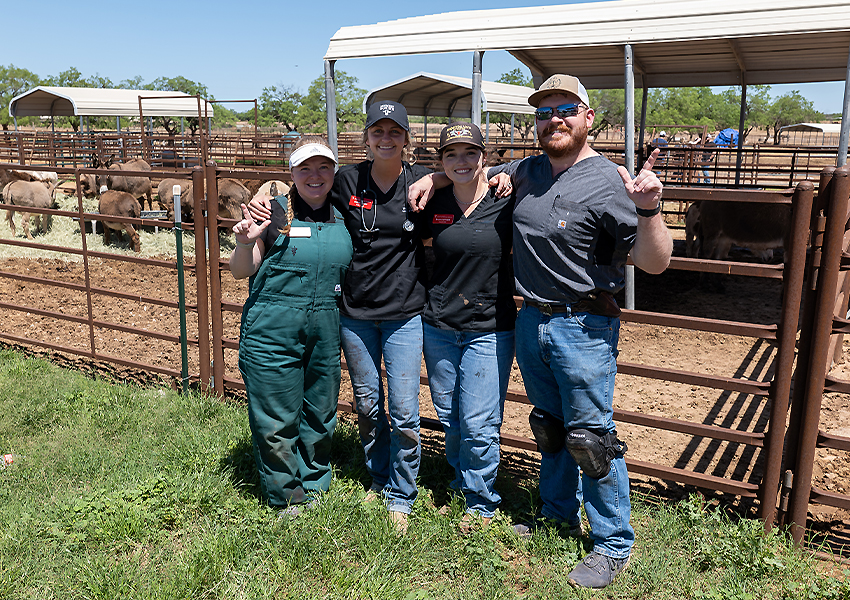
My goal for the future is to be a rural production animal veterinarian, specifically beef cattle. I am unsure yet if that will be through opening up a brick-and-mortar clinic someday or if it will be through mobile veterinary services. I truly see myself owning a mobile practice someday.
I want to offer rural communities and producers a variety of services that include overall herd health, reproduction and breeding management, consulting and ambulatory services. I also have a passion for producer education. I am a firm believer that being a veterinarian goes way beyond just medicine. Being involved in the community by helping to teach and educate producers on how to create high-quality cattle herds is something I'm very passionate about.
I also hope to influence the younger generation that follows. If we want to decrease the demand for veterinarians, we must influence those that come after us to be a part of our industry. Being involved in the 4-H and National FFA Organization programs, letting kids ride alongside us and teaching them about livestock are some of the many ways I hope to influence communities in my future.
Why did you choose Texas Tech? 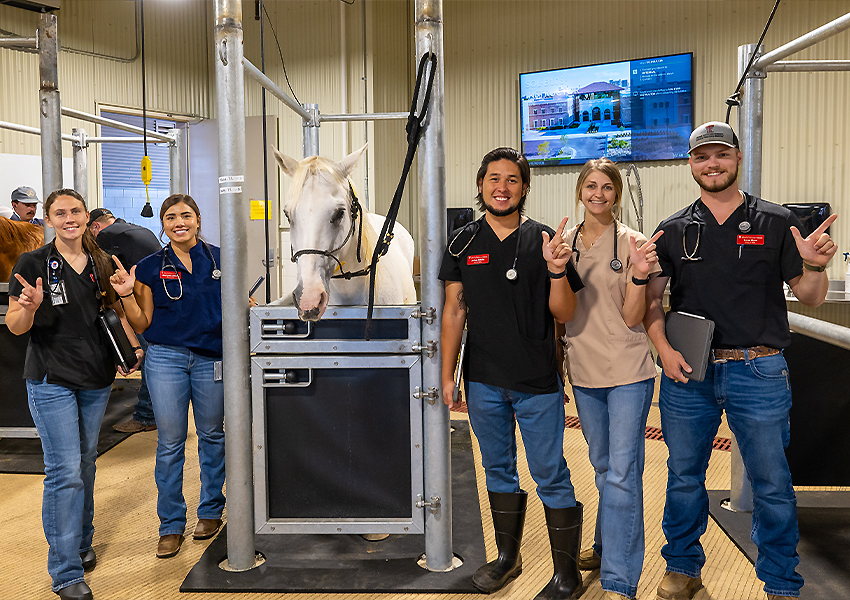
I knew I wanted to go to Texas Tech from the moment I heard that a new veterinary school was in the works. I was a junior in high school when I heard through the grapevine that “a large animal veterinary school proposal” had been made.
Flash forward to 2018, I was in college and the Texas Tech School of Veterinary Medicine was confirmed. It didn't take long after that to know there was no better choice for me. Everything about the mission and core values of the School of Veterinary Medicine was something I aspired to be a part of.
In summary, it was apparent this school wanted to produce practice-ready veterinarians to service rural and regional communities. On top of that, the school put emphasis on producing large animal practitioners. I have known two things for certain throughout my life: I will be a large animal veterinarian and I will service rural communities just like the one I came from. Knowing those two things I could confidently say Texas Tech University's School of Veterinary Medicine is the best decision for my future and I want to be there.
What was your reaction when you got the call that you were accepted to Texas Tech
University's School of Veterinary Medicine? 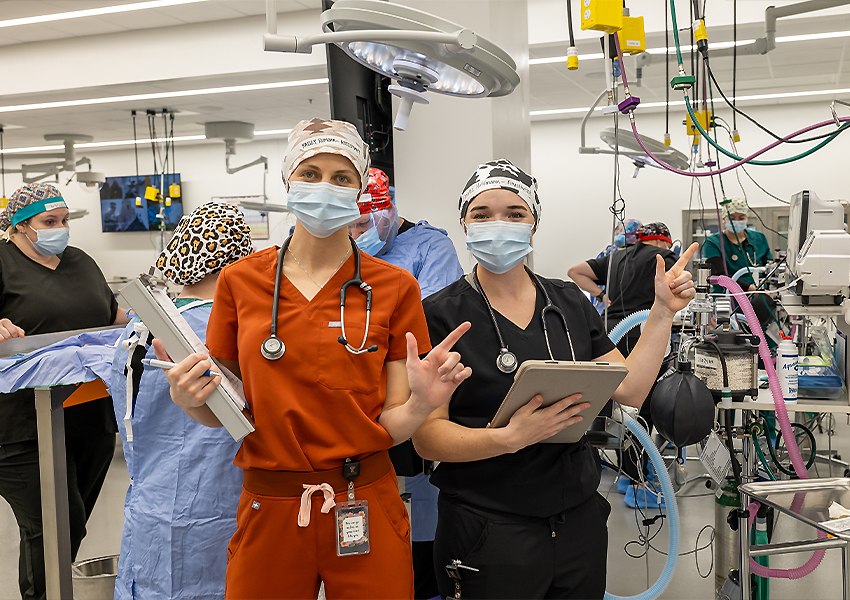
I had a magnitude of emotions when I got the phone call with my acceptance. It was truly hard to believe at first, but overall, I just felt blessed. It finally felt like my hard work had paid off up to that moment.
Veterinary school is so competitive, and the application process is intense. I think as students we would all be lying if we said we weren't concerned about receiving a rejection letter.
In order to become a veterinarian, the first and hardest step is actually being accepted into veterinary school. Being able to receive an acceptance letter means we have tackled the first part of our journey. There are truly no words to describe how rewarding that feels.
Another feeling I immediately had was relief. Texas Tech was the only school I applied to. It was my first attempt at applying to veterinary school and so many people told me I was crazy for putting all my eggs in one basket on my first time. However, I was invested in Texas Tech; I believed in this program and knew there was nowhere else I wanted to be.
This thought was confirmed after I got my acceptance call. It's rare to get a phone call from a veterinary school upon acceptance. Usually, you just get a letter. However, Guy Loneragan, dean of the School of Veterinary Medicine, picked up the phone and called me. I had respect for this school before, but after that moment, I knew I made the right choice in only choosing Texas Tech.
I knew from the moment I spoke with Dean Loneragan he believed in me and wanted me to be a part of the culture and family at the School of Veterinary Medicine. If I had to do it all over again, I would make the same decision every time.
How are you involved with the school?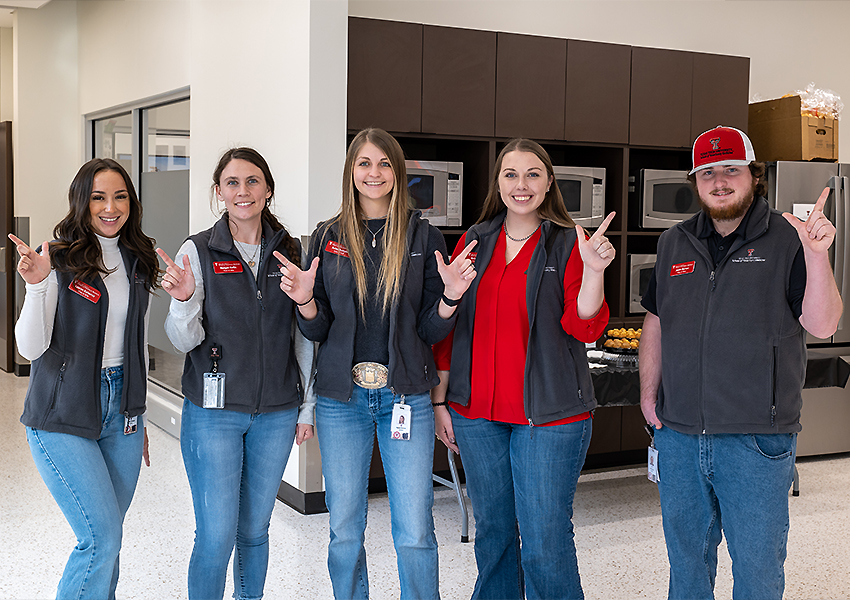
I have been a member of the School of Veterinary Medicine's food animal medicine club since my first semester in vet school and now I'm the vice president of the club. This is truly something I'm proud to be involved in. I have a love for food animal medicine and being able to share that love with others and help encourage the classes below us to be involved in the food animal medicine club is so exciting.
I am also a member of the School of Veterinary Medicine's American Association of Bovine Practitioners (AABP) quiz bowl team. Last year was the first time Texas Tech had a team and competed at the AABP conference. We did a great job and represented the school with pride. This year our plan is to do the same.
Going into my third year of school, my plan is to join the School of Veterinary Medicine's palpation team, in hopes to compete with them as well. Other things I love being involved in outside of the food animal club are the incoming classes' student interview days and student orientation. Helping support the incoming classes and encouraging them on their future journey is something that truly brings me joy.
What are your favorite things to do outside of school?
My life outside of school revolves around many different things. Spending time with my significant other and my family has always been a priority in my life. I also have incredible friends that help to ease the stressful times that veterinary school can bring about.
Aside from friends and family, I have two dogs, a blue heeler and a red heeler, who keep me very busy and have a huge portion of my heart. Something else that is extremely important to me is setting aside time to do the things I love that ultimately drove me to become a veterinarian in the first place. I have a passion for ranching and running livestock. Taking time during my breaks to help work cattle, being a part of calving seasons and palpating cows every chance I get is what helps remind me of the “why” behind all the work we are putting in during school.
